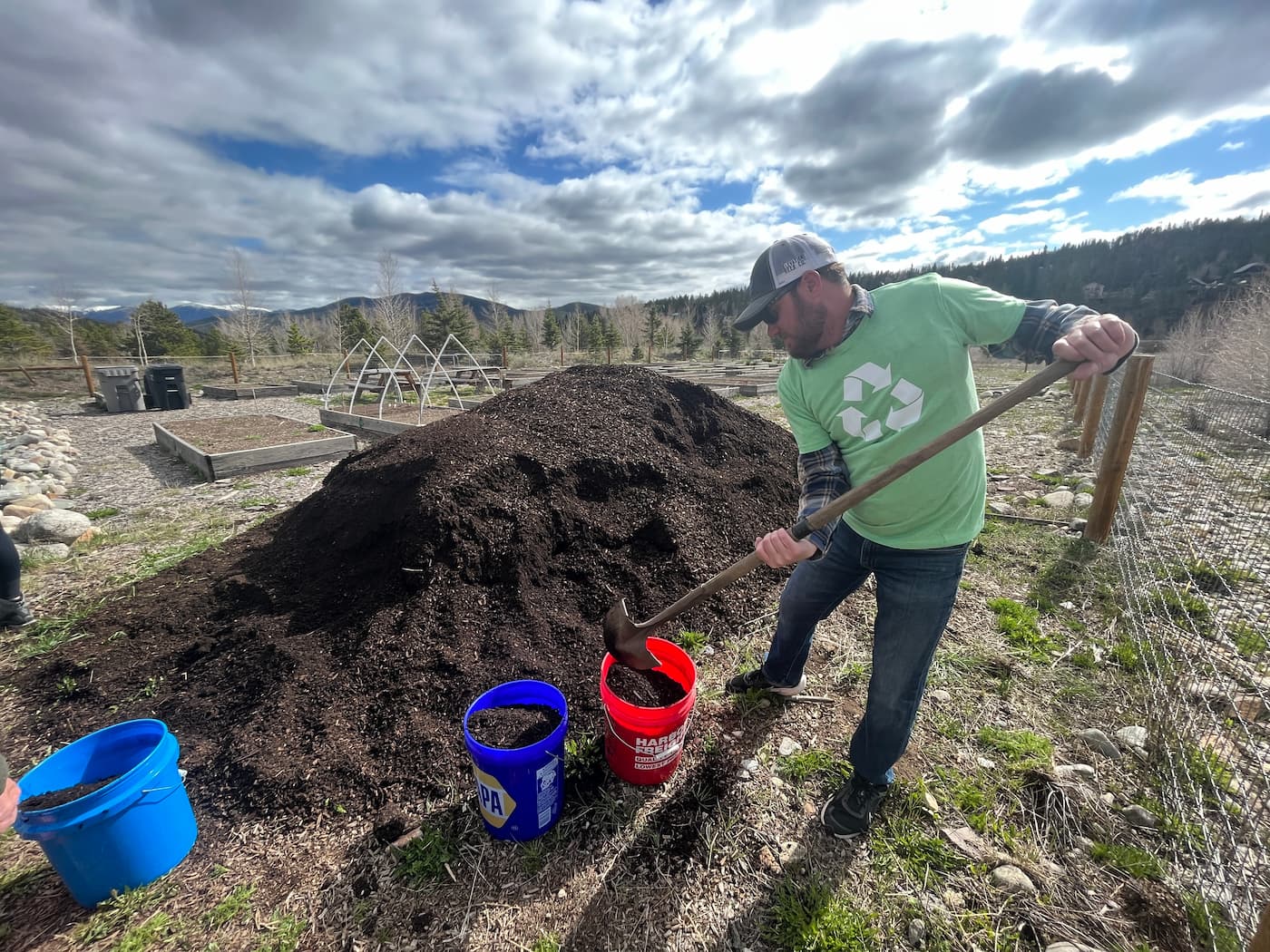
- High Country Conservation
- March 15, 2024
- Ask Eartha
Dear Eartha, I know composting is good for our environment. Outside of creating a healthier soil environment for plants, what other benefits does composting provide our community?
Thank you for the great question. Composting has been part of humankind since early civilizations began practicing agriculture. While the process has evolved over thousands of years, composting has stayed rooted in its core; naturally processing biodegradable materials such as food scraps into a fully decomposed matter that we know today as compost.
Summit County Composting Program
Here in Summit County, High Country Conservation Center (HC3) and the Summit Country Resource Allocation Park (SCRAP) operate a FREE food scrap program. Once enrolled in the program, Summit County residents can drop off their food scraps at one of the 8 public drop off locations found throughout the county, which are accessible 24/7. The collected food scraps are then hauled to the SCRAP, processed with other materials such as beetle kill wood waste, the processed material is then certified and sold back to the community as High-Country Compost.
Why is Composting Good?
Compost is considered a soil amendment, which refers to materials applied or mixed with topsoil to improve soil health. Compost improves soil chemical structure by providing nutrients such as nitrogen which is an essential ingredient for optimal plant growth. It also improves the physical and biological properties of soil, allowing for more air and water to be retained and made readily available for plants. These improved soil properties improve the plant environment, but they help alleviate the use of chemical fertilizers and pesticides as plants are healthier from the get-go.
The Other Benefits of Composting
Composting programs do something that we love at HC3, they help reduce waste! According to a recent study about 30% of waste that is taken to our local landfill is categorized as food waste. Hence the more food waste that goes through a composting program, the more space we are leaving open in the landfill for waste that cannot be recycled or processed for other uses. In 2024, thanks to the participation of our community, the food scrap program was able to divert over 390,000 lbs of food waste from our landfill.
Another reason why we love composting is that it helps combat climate change. When food waste ends up with general waste at the landfill, it finds itself in an environment where it releases greenhouse gases, such as methane, when decomposing. Alternatively, composting food waste does not create methane. Therefore, the more food scraps we compost instead of trash, the more greenhouse gases are prevented from entering our atmosphere.
Compost is also a valuable tool in building resilient landscapes. Compost improves the binding of soils, helping prevent soil erosion. It is great at conserving water due to its ability to retain and efficiently transfer water. This slows the surface flow of water and can be used as a natural tool to help with stormwater management. By strategically placing compost in locations in proximity to roadways and wetlands, compost can help filter out pollutants caused by automobile traffic. One local example is that the Colorado Department of Transportation uses High-County Compost for their revegetation projects along major roadways in the county.
The final benefits we would love to share is that compost programs provide jobs and create a local good from ‘waste.’ From the folks running program logistics to haulers transporting the food scraps to the team processing the compost at the SCRAP, there are several local jobs that are necessary for this program to succeed. By creating this product within county lines, high country compost can help meet local demand without heavily relying on getting compost from other parts of the state or country.
We believe all these benefits showcase the importance of communities worldwide having a composting program of some sort. Composting is part of our past, part of our present and will be a key factor for our future if we want to live in a resilient world. Ready to join your local composting movement? Start today by enrolling in the Summit County food scrap program.
Ask Eartha Steward is written by the staff at the High Country Conservation Center, a nonprofit dedicated to waste reduction and resource conservation. Submit questions to Eartha at info@highcountryconservation.org
